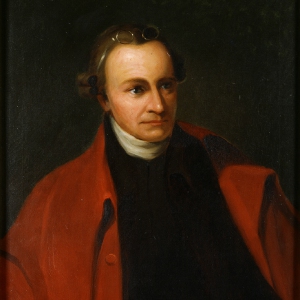My Turn: President Kamala Harris and a Democratic Congress can restore reproductive rights nationwide

Carrie Baker
| Published: 07-25-2024 9:19 AM |
Last Sunday evening, just hours after President Joe Biden announced he would withdraw from the presidential race, 44,000 Black women met online and raised over $1.5 million for Vice President Kamala Harris in under two hours. On the popular fundraising website Act Blue, Democrats raised over $90 million in the first 24 hours, more than any day in the website’s history, from 888,000 donors — 60 percent giving in the 2024 election for the first time. “This might be the greatest fundraising moment in Democratic Party history,” said Democratic digital Strategist Kenneth Pennington.
Harris ended Sunday with the endorsement of more than 100 Democratic members of Congress, half the Senate caucus, and every major potential challenger to her candidacy. Even before Biden’s announcement, Harris was out polling Joe Biden in all six swing states and was well ahead of Biden in states that Democrats need to hold such as Minnesota and Virginia. While there are many factors as to why Harris has received such enthusiastic support, one hugely important reason is her leadership on reproductive rights.
Unlike Biden, Harris has been a long-standing and vocal supporter of women’s reproductive rights. In August of 2022, shortly after the Supreme Court overturned the half-century-old constitutional right to abortion, Vice President Harris came to Massachusetts to meet with political leaders and reproductive rights activists. She applauded the commonwealth’s bipartisan work to guarantee access to reproductive health care and to protect patients and providers. She called Massachusetts a “national model” and encouraged our leaders to support state legislators across the country who were fighting for abortion protections.
Her visit to Massachusetts was part of a cross-country campaign convening state legislators to protect reproductive rights in Florida, Pennsylvania, New Jersey, North Carolina, Virginia and Indiana. In Washington D.C., she brought together legislators from Montana, Indiana, Florida, South Dakota, and Nebraska. She also spoke with health care providers, constitutional law experts, faith leaders, state attorneys general, disability rights leaders, and women’s rights advocates. Vice President Harris is the Democratic Party’s leading voice on abortion rights — a priority issue for many voters.
Nearly three quarters of voters support a women’s right to make their own reproductive decisions, including about abortion, contraception and continuing a pregnancy without governmental interference. Almost two-thirds of Americans say abortion should be legal in all or most cases. Majorities of residents in Republican-controlled states (57 percent) and nearly two-thirds (64 percent) of residents in battleground states (Arizona, Georgia, Michigan, Nevada, North Carolina, Pennsylvania, and Wisconsin) say that abortion should be legal in all or most cases. Abortion rights are a top issue for women voters, especially young women, ranking above inflation and rising prices.
Since June of 2022, when the Supreme Court overturned Roe v. Wade, seven states have had abortion-related ballot measures. Voters chose to protect abortion rights in all seven states by wide margins, including in Kansas (59 to 41), California (67 to 33), Michigan (57 to 43), Vermont (77 to 23), Kentucky (52 to 48), Montana (53 to 47) and Ohio (57 to 43). With a 100 percent success rate so far, reproductive rights activists are pushing for abortion rights ballot measures in another 11 states this fall, with the added hope they will turn out voters in battleground states like Arizona and Nevada.
A second Trump administration would pose an existential threat to abortion rights, even in states like Massachusetts that protect abortion rights. The MAGA Project 2025 policy agenda calls on Trump to direct the Food and Drug Administration to reverse approval of the abortion pill mifepristone, which is now used in 63 percent of all abortions, and directs the Department of Justice to criminally prosecute anyone who mails abortion pills and potentially any medical instrument used in procedural abortion — effectively establishing a nationwide ban on abortion. The MAGA policy agenda also calls for reversal of the Biden administration policy that requires hospitals to offer life-saving abortions in medical emergencies regardless of state bans and calls for the withdrawal of Medicaid funds from states like Massachusetts that require insurance coverage for abortion. And so much more.
Kamala Harris’s leadership on reproductive rights is perhaps best demonstrated by a moment during the 2018 Senate confirmation hearings of Supreme Court nominee Brett Kavanaugh, when after he refused to say whether he supported Roe v. Wade, Senator Kamala Harris pressed him: “Can you think of any laws that give the government the power to make decisions about the male body?” At first first confused by the question, Kavanaugh eventually admitted he couldn’t, revealing the injustice of the task we all knew he’d been appointed to accomplish.
Article continues after...
Yesterday's Most Read Articles
 Local ‘Hands Off!’ standouts planned as part of national effort
Local ‘Hands Off!’ standouts planned as part of national effort
 Shelburne Selectboard determines police detective will retain job
Shelburne Selectboard determines police detective will retain job
 Local libraries react to state funding cuts, federal administrative leave
Local libraries react to state funding cuts, federal administrative leave
 Incandescent Brewing now open in Bernardston
Incandescent Brewing now open in Bernardston
 Cooking up an expansion: Cocina Lupita eyes second location in Turners Falls
Cooking up an expansion: Cocina Lupita eyes second location in Turners Falls
 ‘She is our future’: Thirty years after permitting women to join, Montague Elks is almost entirely women-led
‘She is our future’: Thirty years after permitting women to join, Montague Elks is almost entirely women-led
Will right-wing politicians, government officials and religious extremists dictate our intimate and life-altering reproductive decisions? Or will the people vote for a government that will support us in making these critical personal decisions for ourselves. In the words of Hillary Clinton, “when we elect our first woman president and a Democratic Congress, we can restore Roe and reproductive freedom across the country.”
Carrie N. Baker is a professor in the Program for the Study of Women and Gender at Smith College and a regular contributor to Ms. Magazine.






 As I See It: How liberty itself killed liberalism in America
As I See It: How liberty itself killed liberalism in America My Turn: Invest in hunger-free campuses to make free college truly work
My Turn: Invest in hunger-free campuses to make free college truly work Beth Girshman: Support federal funding of libraries and museums
Beth Girshman: Support federal funding of libraries and museums Dale Moss: Trump, Musk actions will cause long-term damage
Dale Moss: Trump, Musk actions will cause long-term damage
